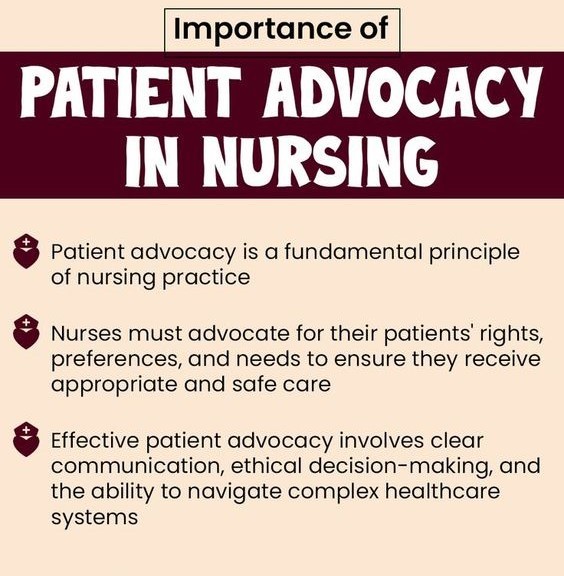
Table of Contents
The nursing profession is inherently one of advocacy. Nurses are the bridge between patients and complex healthcare systems, ensuring voices are heard, needs are met, and rights are protected. Writing a nursing essay on patient advocacy allows you to delve into the complexities of this vital role, exploring its ethical foundations, practical applications, and the profound impact it has on patient care.
Understanding the Scope of Patient Advocacy
Before you begin writing your nursing essay on patient advocacy, it’s crucial to understand the multifaceted nature of this concept. It encompasses more than just speaking up for patients. It requires a deep understanding of their needs, rights, and preferences, coupled with the ability to navigate the healthcare system effectively.

A Deep Dive into the Nursing Essay on Patient Advocacy
To craft a compelling and insightful nursing essay on patient advocacy, consider these key areas:
1. Defining Patient Advocacy: A Foundation for Your Argument
Your essay must start with a clear and concise definition of patient advocacy. What does it mean to be an advocate for your patients? How does it differ from simply providing patient care?
- Ethical Considerations: Explore the ethical principles underpinning patient advocacy. Discuss concepts like autonomy, beneficence, and non-maleficence, and how they guide the advocate’s actions.
- The Nurse’s Role: Define the nurse’s responsibility as an advocate. Explain how their unique position within the healthcare system empowers them to champion their patients’ interests.
- Examples of Advocacy: Provide real-world examples of patient advocacy in action. This could be advocating for a patient’s right to informed consent, challenging a treatment plan that doesn’t align with the patient’s values, or supporting a patient’s decision to refuse treatment.
2. The Power of Communication: A Cornerstone of Effective Advocacy
Effective communication is the lifeblood of patient advocacy. It’s about actively listening, understanding, and communicating patients’ needs to the healthcare team.

- Active Listening: Discuss the importance of active listening in patient advocacy. Explain how it helps nurses understand the patient’s perspective, including their concerns, fears, and hopes.
- Effective Communication Strategies: Explore techniques for effective communication. These could include using plain language, asking open-ended questions, and actively seeking feedback from the patient.
- Bridging the Gap: Explain how nurses act as bridges between patients and other healthcare professionals. Discuss their role in facilitating clear and open communication between all parties involved.
3. Navigating Complexities: Challenges and Obstacles to Advocacy
The nursing essay on patient advocacy should not shy away from discussing the challenges faced by nurses in their role as advocates.
- Systemic Barriers: Highlight the systemic barriers that can hinder effective patient advocacy. This could include limited resources, bureaucratic procedures, or the pressure to prioritize efficiency over individual patient needs.
- Power Dynamics: Discuss the power dynamics within the healthcare system that can influence patient advocacy. For example, nurses may face pressure from superiors or specialists to follow certain protocols, even if they believe those protocols are not in the patient’s best interest.
- Patient Autonomy vs. Healthcare Professional Expertise: Explore the delicate balance between respecting patient autonomy and ensuring that the patient receives the best possible medical care.
4. The Importance of Collaboration: A Team Approach to Patient Advocacy
Patient advocacy is not a solitary act. Nurses need to collaborate with other healthcare professionals to effectively advocate for their patients.

- Interdisciplinary Teams: Discuss the benefits of interdisciplinary teams in patient advocacy. Explain how a team approach can improve communication, coordination of care, and ultimately, patient outcomes.
- Building Trust and Respect: Highlight the importance of building trusting relationships with colleagues to facilitate effective advocacy. Explain how a collaborative environment encourages open communication and a shared commitment to patient well-being.
- The Power of Shared Decision Making: Discuss how nurses can empower patients to participate in their own care through shared decision making.
5. Measuring the Impact: Evaluating the Effectiveness of Patient Advocacy
Your nursing essay on patient advocacy should address the question of how to measure its effectiveness.
- Patient Satisfaction: Explore how patient satisfaction can be used as an indicator of effective patient advocacy. Discuss how surveys and feedback mechanisms can be used to assess patient perceptions of the advocacy they receive.
- Health Outcomes: Explain how improved health outcomes can demonstrate the positive impact of patient advocacy. Consider how advocacy can contribute to better adherence to treatment plans, reduced hospital readmissions, and improved overall quality of life.
- Ethical Considerations in Data Collection: Address any ethical considerations related to data collection for evaluating patient advocacy. Ensure that patient privacy and confidentiality are respected.
6. Looking Ahead: The Future of Patient Advocacy in Nursing
Your nursing essay on patient advocacy should also consider the future of this crucial aspect of nursing practice.

- Emerging Technologies: Explore how emerging technologies, such as telehealth and AI, might influence patient advocacy. Discuss the potential benefits and challenges of integrating these technologies into the advocacy process.
- Patient Empowerment: Discuss the growing trend of patient empowerment and its impact on patient advocacy. Explain how nurses can navigate this changing landscape and continue to be effective advocates.
- Advocating for Systemic Change: Encourage nurses to advocate for systemic changes that improve patient care and strengthen the role of patient advocates.
Crafting Your Nursing Essay on Patient Advocacy: Tips for Success
Now that you have a framework for your nursing essay on patient advocacy, here are some tips to ensure your essay is compelling and impactful:
- Choose a specific focus: While patient advocacy is broad, choose a specific angle or area to explore. This could be the role of nurses in end-of-life care, advocating for patients with mental health conditions, or the impact of cultural competence on patient advocacy.
- Use strong evidence: Back up your arguments with research, case studies, and relevant literature. This demonstrates your understanding of the topic and strengthens your credibility.
- Engage with ethical considerations: Patient advocacy is inherently intertwined with ethical principles. Discuss these principles and how they guide your practice.
- Use clear and concise language: Avoid jargon and technical terms that might be unfamiliar to your audience.
- Show, don’t tell: Use personal anecdotes or examples to illustrate your points and make your essay more engaging.
- Proofread and edit carefully: A polished and error-free essay demonstrates your attention to detail and professionalism.
Common Mistakes in Nursing Essay Writing and How to Avoid Them
Writing a strong nursing essay can be challenging, but avoiding common pitfalls can help you achieve a high-quality piece. Here are some key mistakes and how to address them:
1. Lack of Focus and Clear Argument:
- Mistake: Rambling essays without a clear thesis statement or argument.
- Solution: Develop a strong thesis statement that outlines your main argument. Ensure every paragraph and sentence directly supports this argument. Be specific and avoid generalizations.
2. Insufficient Evidence and Support:
- Mistake: Making claims without providing evidence or relying solely on anecdotal experiences.
- Solution: Use credible sources to support your arguments. This could include peer-reviewed research articles, nursing textbooks, or official guidelines. Use specific examples from your experiences to illustrate your points, but avoid sharing too much personal information.
3. Lack of Critical Analysis and Application:
- Mistake: Simply summarizing information without offering your own insights or applying concepts to specific situations.
- Solution: Analyze the information you present. Explain the implications of your findings. Connect your arguments to the broader context of nursing practice. Consider how your ideas relate to the nursing essay on patient advocacy.

4. Poor Structure and Organization:
- Mistake: Disorganized essays with unclear transitions between paragraphs or sections.
- Solution: Use a logical structure for your essay. Introduce your topic, present your arguments, and conclude with a summary of your main points. Use clear transitions to guide the reader through your argument. Ensure that each paragraph focuses on a single idea.
5. Improper Grammar and Mechanics:
- Mistake: Grammatical errors, typos, and inconsistent formatting can distract the reader and undermine your credibility.
- Solution: Proofread carefully for errors in grammar, spelling, and punctuation. Use a style guide to ensure consistent formatting throughout your essay. Consider using a grammar checker and having a friend or colleague review your work.
6. Failing to Address the Prompt:
- Mistake: Misunderstanding or ignoring the specific requirements of the essay prompt.
- Solution: Read the prompt carefully and identify the key concepts and questions you need to address. Make sure your essay directly answers the question posed.
7. Lack of Professionalism:
- Mistake: Using slang, informal language, or inappropriate content.
- Solution: Maintain a professional tone throughout your essay. Use academic language and avoid jargon or overly technical terms. Be respectful of your audience and the topic you are discussing.
Applying these Principles to a Nursing Essay on Patient Advocacy
- Example Thesis: “Patient advocacy is an essential aspect of nursing practice, requiring nurses to advocate for patients’ rights, safety, and autonomy through effective communication, collaboration, and ethical decision-making.”
- Evidence: You can support this thesis by citing relevant research on patient advocacy, discussing legal and ethical frameworks, and illustrating how nurses can advocate for patients in specific situations.
- Critical Analysis: Discuss the challenges of patient advocacy, such as power imbalances or limited resources. Analyze how nurses can overcome these challenges to ensure patients’ voices are heard.
- Structure: Organize your essay into sections that address different aspects of patient advocacy, such as communication, collaboration, and ethical decision-making.
- Professionalism: Maintain a professional tone throughout your essay, using clear and concise language. Avoid using personal anecdotes that might compromise patient confidentiality.
Remember, a strong nursing essay on patient advocacy requires a clear argument, strong evidence, and a professional presentation. By avoiding common mistakes and focusing on these key elements, you can produce a high-quality essay that demonstrates your knowledge and commitment to patient-centered care.
The Power of Your Nursing Essay on Patient Advocacy
Writing a nursing essay on patient advocacy is not simply an academic exercise. It is an opportunity to reflect on the profound impact you can have on your patients’ lives. It is a chance to articulate your commitment to their well-being and to advocate for the rights and dignity of all patients.
By exploring the ethical foundations, practical applications, and future trends of patient advocacy, you can create a nursing essay that is both informative and inspiring. It can be a powerful tool for raising awareness about this crucial aspect of nursing practice and for encouraging future generations of nurses to embrace the role of patient advocate with passion and commitment.

The nursing essay on patient advocacy allows you to delve into the heart of what it means to be a compassionate and dedicated nurse. It empowers you to explore the challenges, rewards, and evolving landscape of this critical role, ultimately strengthening your commitment to the patients you serve.
Professional Help with a Nursing Essay on Patient Advocacy
Looking for professional help with a nursing essay on patient advocacy? Then, look to PhD Nurse Writer. We offer the best nursing essay writing services for undergraduate, Degree, Master’s and PhD levels. Besides essays, we can also help you with writing nursing research papers, case studies and dissertations.





